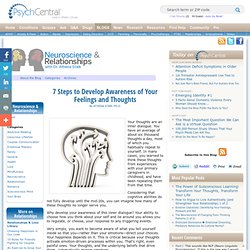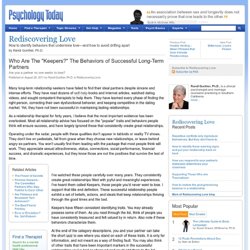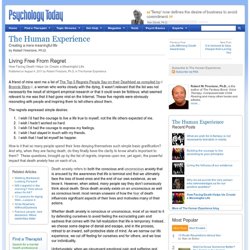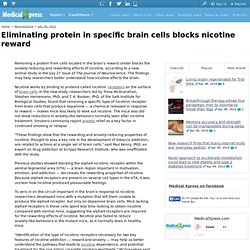

REASONS TO STAY ALIVE. 24 Comics That Capture The Frustration Of Anxiety Disorders. Positive Emotion Dysregulation across Mood Disorders: How Amplifying versus Dampening Predicts Emotional Reactivity and Illness Course. Eight Ways We Take Refuge in Emotional Pain. No one likes emotional pain, but some of enjoy the fringe benefits.

The reason why we cling to unnecessary emotional pain has to do with taking unconscious pleasure in it. Can Marijuana Reduce Social Pain? Timothy Deckman, University of Kentucky, 0004 Kastle Hall, Lexington, KY 40506, USA.

Email: timdeckman@gmail.com Abstract Social and physical pain share common overlap at linguistic, behavioral, and neural levels. 360 Degrees of Mindful Living. In this post I want to briefly share my understanding of the interplay between fear and anger, or, at the risk of sounding a tad too lofty, my philosophy of anger and fear.

I call it “sutra on anger and fear.” The word “sutra” is Sanskrit for “aphoristic teaching.” (I don’t speak Sanskrit but I like to play with it a bit since much of my clinical thinking has been influenced by Vedic and Buddhic ideas that had been originally written in the language of Sanskrit.) This “teaching on anger and fear” is rather basic but it’s pivotal to understanding my approach to anger management (I’ll be sharing some anger management tips in the months to come as I am currently working on an anger management book). Here are the key points about anger that inform my anger management approach: Understanding the Effects of Social Environment on Trauma Victims. 6 Harsh Truths That Will Make You a Better Person.
Why Is It So Hard To Get Anyone To Change? 7 Steps to Develop Awareness of Your Feelings and Thoughts. Your thoughts are an inner dialogue.

You have an average of about six thousand thoughts a day, most of which you habitually repeat to yourself. In many cases, you learned to think these thoughts from experiences with your primary caregivers in childhood, and have been repeating them from that time. Who Are The "Keepers?" The Behaviors of Successful Long-Term Partners. Many long-term relationship seekers have failed to find their ideal partners despite sincere and intense efforts.

They have read dozens of self-help books and Internet articles, watched dating videos, and sought competent therapists to help them. They have learned every phase of finding the right person, correcting their own dysfunctional behavior, and keeping competitive in the dating market. Yet, they have not been successful in maintaining lasting relationships. Loving Someone With Asperger’s Syndrome. We’ve all encountered the brilliant artist who creates incredible, creative pieces of art, but does not pick up on your cues that you are ready to leave the conversation and move on.

Or the person who can tell you absolutely everything you ever wanted to know about summer weather patterns, but totally missed the joke you just told and is now looking at you like you did something offensive. We walk away from these encounters wondering what exactly is going on since the person is obviously high functioning, but seems “socially awkward.” Perhaps these people have Asperger’s Syndrome. Depression’s Other Symptoms. The hallmark symptoms of clinical depression are no doubt sadness and loss of interest in activities previously enjoyed.

Many people also are familiar with appetite and sleep changes. But there’s a whole set of other physical symptoms that are less known but just as debilitating. In fact, depression can literally hurt. According to a study conducted at Massachusetts General Hospital and Harvard Medical School, up to about 76 percent of people who report the typical emotional symptoms also report physical signs, such as stomach problems, headaches, backaches and chest pain. Depression also is a chameleon. As Jodi Helmer writes in the fall 2010 issue of Esperanza, a magazine on coping with anxiety and depression: Living Free From Regret. A friend of mine sent me a list of The Top 5 Regrets People Say on their Deathbed as compiled by Bronnie Ware , a woman who works closely with the dying, It wasn’t relevant that the list was not necessarily the result of stringent empirical research or that it could even be fictitious; what seemed relevant to me was that it had gone viral on the Internet.

These five regrets were obviously resonating with people and inspiring them to tell others about them. The regrets expressed simple desires: I wish I’d had the courage to live a life true to myself, not the life others expected of me. I wish I hadn’t worked so hard. Eliminating protein in specific brain cells blocks nicotine reward. Removing a protein from cells located in the brain's reward center blocks the anxiety-reducing and rewarding effects of nicotine, according to a new animal study in the July 27 issue of The Journal of Neuroscience.

The findings may help researchers better understand how nicotine affects the brain. Nicotine works by binding to proteins called nicotinic receptors on the surface of brain cells. In the new study, researchers led by Tresa McGranahan, Stephen Heinemann, PhD, and T. K. Booker, PhD, of the Salk Institute for Biological Studies, found that removing a specific type of nicotinic receptor from brain cells that produce dopamine — a chemical released in response to reward — makes mice less likely to seek out nicotine.
Need Mental Health Treatment in 2 Weeks? Fat Chance. So let’s say you needed mental health treatment right away.

Let’s say it’s an emergency — so much so that you sought out help at the local emergency department, and the doctors there said that you absolutely needed to get into treatment immediately — within a week or two. Now, let’s assume you’ve got good private insurance. You know, something like Blue Cross Blue Shield Massachusetts Preferred Provider Organization. This is one of the best insurance policies you can buy in Massachusetts. What sort of chance would you have in getting to see a mental health professional within two weeks? Multipotentiality: When High Ability Leads to Too Many Options. Jason, a college junior, is trying to decide what to do after graduation. He is leaning strongly toward graduate school but is unsure of whether he wants to stay in the United States or study abroad. An honors student at a liberal arts university, he has taken a wide variety of courses--from chemistry and calculus to philosophy and political science--and he has gotten As in all of them.
Toxic “Feel-Good” Thinking – Why It’s Addictive to Your Brain. Habitual thinking patterns that cause intense feelings of fear, anger, shame or guilt are not only toxic, but also addictive in nature. Why? They stimulate pleasure and learning centers of the brain similar to addictive substances. Toxic thinking is characteristically compulsive in nature and causes intense fear-based feelings, which can overwhelm or zap our body’s energy supply. It consists of thoughts that habitually forecast disaster, perpetuate worry, instill doubt, obsess on perfection, describe self (or another) as a victim, or point fingers at others. So, how can these pain feelings stimulate pleasure? The Role of Anxiety Master. Now Antidepressant-Induced Chronic Depression Has a Name: Tardive Dysphoria. What Your Depressed Partner Would Like You to Know. For the healthy partner, it can be difficult to understand the inner experience of someone with depression.
REPOST: Dopamine and Reward Prediction, or your brain on Rickroll. Marsha Linehan: What is Dialectical Behavioral Therapy (DBT)? Last week the New York Times ran a fascinating piece on Marsha Linehan, Professor of Psychology at the University of Washington and the original developer of Dialectical Behavioral Therapy (DBT), a modification of standard cognitive behavioral therapy (CBT), but including elements of acceptance and mindfulness. Don’t Believe Everything You Think or Feel. People with Schizophrenia: Each person is much more than any diagnosis. The Belief That’s Sabotaging Your Life. Frenemies: The New Enemy.
Can You Be Your Own Source of Comfort and Security? A Bold Question About Attachment. Want to be successful? Be kind to yourself - TODAY Health. Scientists show how adversity dulls our perceptions. Kids got the blues? Maybe they don't have enough friends. Professor: Pain of ostracism can be deep, long-lasting.